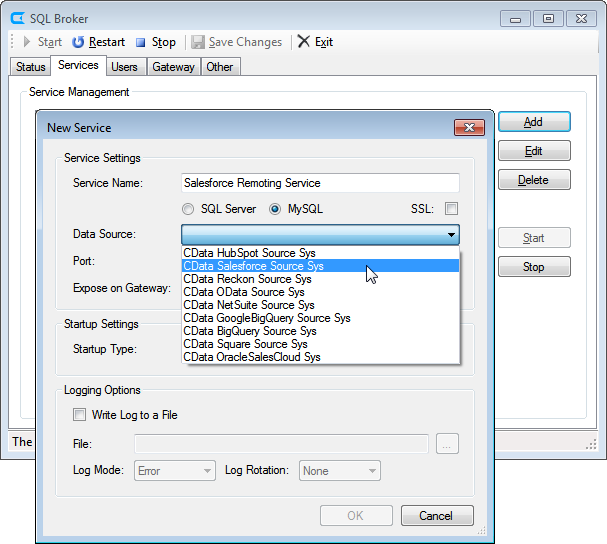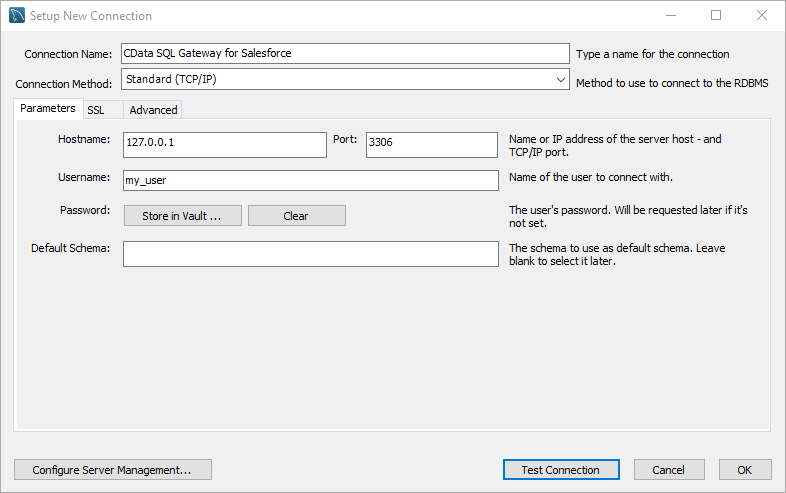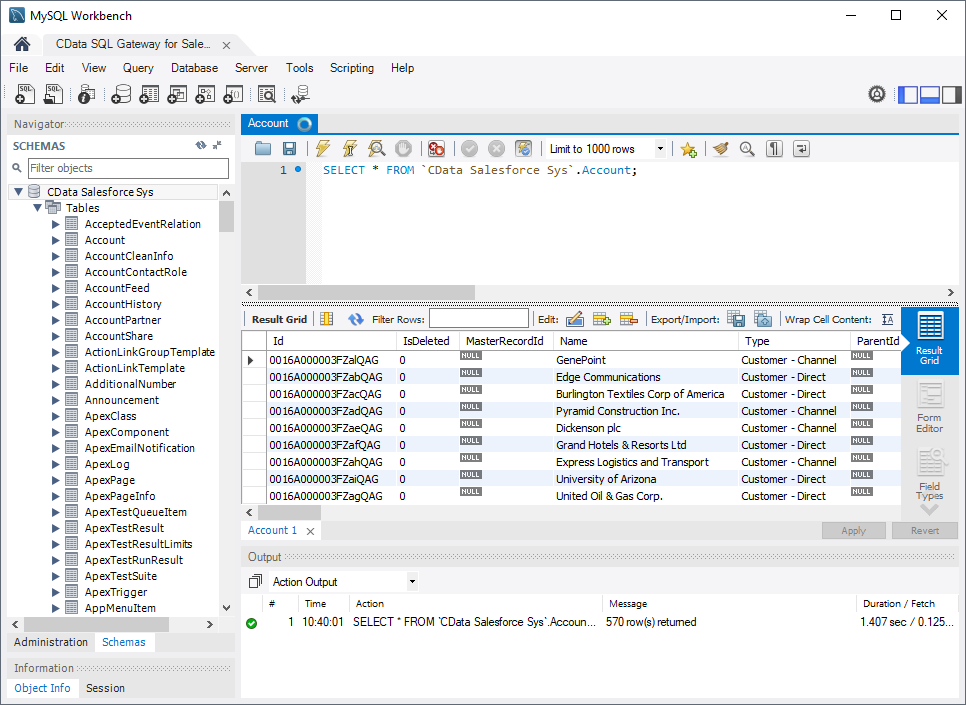Discover how a bimodal integration strategy can address the major data management challenges facing your organization today.
Get the Report →How to Query EventBrite Data in MySQL Workbench
Execute MySQL queries against live EventBrite data from MySQL Workbench.
You can use the SQL Gateway from the ODBC Driver for EventBrite to query EventBrite data through a MySQL interface. Follow the procedure below to start the MySQL remoting service of the SQL Gateway and work with live EventBrite data in MySQL Workbench.
Connect to EventBrite Data
If you have not already done so, provide values for the required connection properties in the data source name (DSN). You can use the built-in Microsoft ODBC Data Source Administrator to configure the DSN. This is also the last step of the driver installation. See the "Getting Started" chapter in the help documentation for a guide to using the Microsoft ODBC Data Source Administrator to create and configure a DSN.
Start by setting the Profile connection property to the location of the EventBrite Profile on disk (e.g. C:\profiles\EventBrite.apip). Next, set the ProfileSettings connection property to the connection string for EventBrite (see below).
EventBrite API Profile Settings
To use authenticate to EventBrite, you can find your Personal Token in the API Keys page of your EventBrite Account. Set the APIKey to your personal token in the ProfileSettings connection property.
Configure the SQL Gateway
See the SQL Gateway Overview to set up connectivity to EventBrite data as a virtual MySQL database. You will configure a MySQL remoting service that listens for MySQL requests from clients. The service can be configured in the SQL Gateway UI.

Query EventBrite from MySQL Workbench
The steps below outline connecting to the virtual EventBrite database created in the SQL Gateway from MySQL Workbench and issuing basic queries to work with live EventBrite data.
Connect to EventBrite through the SQL Gateway
- In MySQL Workbench, click to add a new MySQL connection.
- Name the connection (CData SQL Gateway for EventBrite).
- Set the Hostname, Port, and Username parameters to connect to the SQL Gateway.
- Click Store in Vault to set and store the password.
- Click Test Connection to ensure the connection is configured properly and click OK.

Query EventBrite Data
- Open the connection you just created (CData SQL Gateway for EventBrite).
- Click File -> New Query Tab.
- Write a SQL query to retrieve EventBrite data, like SELECT * FROM `CData API Sys`.Events;

With access to live EventBrite data from MySQL Workbench, you can easily query and update EventBrite, just like you would a MySQL database. Get started now with a free, 30-day trial of the CData API Driver for ODBC and the CData SQL Gateway.






